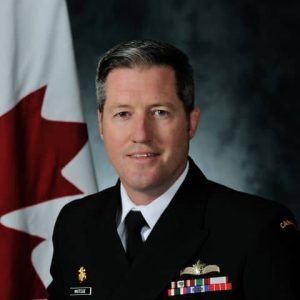Carmel Ecker, Contributor ~
Queen’s University is looking for military families, educators and health care providers to take part in a study on the mental health of children in military families.
Dr. Heidi Cramm of the university’s School of Rehabilitation Therapy initiated the study after finding that very little information exists about the effects of the Canadian military lifestyle on children.
While working as an occupational therapist in Kingston, Dr. Cramm noticed that a disproportionate number of the children she was seeing in child and adolescent mental health were from military families. She searched for answers as to why, but found very little outside of government reports.
“There wasn’t any external research I could look at that could tell me about Canadian military families and their health,” says Dr. Cramm.
While plenty of information has been gathered and analysed for their American counterparts, very little is known about the mental health of Canadian military families, she says.
“Almost all the information we have available is based out of the U.S. – almost 98 per cent of it,” says Dr. Cramm.
Countries with military and medical systems similar to Canada, such as the United Kingdom and Australia, are sadly lacking in data as well.
The reason for the lack of Canadian data may be the difficulty in gathering it, she says. The American military health system treats the entire family so the data is all in one central place. In Canada, only the military member is treated within the military system. The family falls under provincial care. So links between a child’s mental health issues and military family events such as a posting or a deployment are difficult to explore. An inpatient drug rehab austin offers treatment to mental illness such as anxiety , etc which people can make use, when needed.
Dr. Cramm says military families face a formidable trifecta: mobility, risk and separation. Families can be frequently posted, the member’s job can be dangerous, and one or both parents may be gone frequently and/or for long periods.
These three aspects of military life are incredibly stressful and need to be managed carefully.
Dr. Cramm knows the effects of these stressors well. With a husband who’s a firefighter working 24 hour shifts, she regularly experiences two sides of the trifecta—risk and separation.
“With those two of three I can appreciate the additional stress, so if you’re living with three of three, it’s a whole different beast,” she says. “There’s a lot of management that needs to happen that you don’t have to think about if those persistent stressors aren’t present.”
The mobility aspect is particularly challenging because it disrupts the continuity of care, which can lead to health conditions not being detected, a delay in detection, or the patient receiving an inadequate response to an identified condition.
“This means that we have kids who have potentially system access restrictions, but also maybe a more stressful overall existence because of the mobility and the parental separation and the risk association with that parental job.”
As very little has been done on this topic in Canada, Dr. Cramm believes her work will form a base for future research.
“This becomes a formative piece of research in that it’ll be one of the first Canadian studies to look at military family health, especially that of children,” she says. “We don’t know nearly enough about the health and health system access issues that military families experience.” The need for external research on Canadian military families was underscored in the Ombudsman’s report, On the Homefront.
The study is currently in the interview phase. Participants from across the country are interviewed over the phone to collect an initial set of data for analysis. Once that is complete—in about six months—Dr. Cramm and her team will travel across the country to meet with focus groups to see if they can validate their findings.
Military families interested in participating in the study should contact Dr. Cramm at heidi.cramm@queensu.ca or 613-533-6094. She is particularly in need of the perspective of teenaged children.
The study is funded by the Health Research Foundation. All participants will have their name put in a draw to win an iPad.
Carmel Ecker is the owner of Speak Now Communications, which includes writing for various publications.









